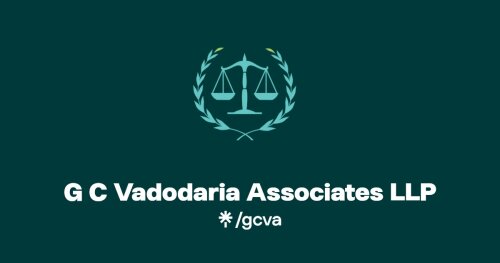Best Elder Abuse Law Lawyers in India
Share your needs with us, get contacted by law firms.
Free. Takes 2 min.
Or refine your search by selecting a city:
List of the best lawyers in India
About Elder Abuse Law in India
Elder abuse is increasingly recognized as a critical issue in India, impacting the health and well-being of senior citizens. The law relating to elder abuse in India is primarily governed by the Maintenance and Welfare of Parents and Senior Citizens Act, 2007. This act mandates the maintenance and protection of senior citizens and parents, and provides a legal framework for addressing neglect, harassment, or abuse. The Act is aimed at ensuring that children or relatives provide basic amenities to the senior citizens, respecting their well-being and dignity.
Why You May Need a Lawyer
Engaging a lawyer with expertise in elder abuse law may be necessary in various situations, such as:
- Filing an application for maintenance by a neglected senior citizen
- Seeking legal action against family members or caregivers accused of abuse or neglect
- Understanding and invoking the provisions of the Maintenance and Welfare of Parents and Senior Citizens Act, 2007
- Navigating disputes over property, inheritance, or wills
- Handling complex legal procedures related to elder care, protection, and rights
Local Laws Overview
Several key aspects of elder abuse law, as encapsulated in the Maintenance and Welfare of Parents and Senior Citizens Act, 2007, are especially pertinent:
- The right of senior citizens to apply for maintenance if neglected by their children or guardians
- Establishment of tribunals specifically reserved for senior citizens' maintenance issues
- Provision for legal representation, if necessary, to senior citizens alleging abuse or exploitation
- Protection of senior citizens’ property rights and prevention of unlawful dispossession
- Promotion of rights and dignity of elderly persons, along with a focus on their physical and mental health
Frequently Asked Questions
What constitutes elder abuse in India?
Elder abuse can take various forms, including physical, emotional, financial abuse, neglect, and exploitation. It involves any action or inaction by a caregiver or family member that harms or endangers the well-being or rights of an elderly person.
Who can file a complaint of elder abuse?
The affected senior citizen, a relative, or any recognized welfare association has the right to file a complaint or application before the maintenance tribunal under the Maintenance and Welfare of Parents and Senior Citizens Act.
What is the maintenance amount that a senior citizen can claim?
The maintenance amount is determined by the tribunal based on the senior citizen's financial needs and the children or relative’s ability to pay. Each case may differ.
Are there penalties for not complying with tribunal orders?
Yes, non-compliance with maintenance orders can lead to penalties, including fines or imprisonment of the responsible party, as decreed by the tribunal.
What legal rights does a senior citizen have regarding property in cases of abuse?
Senior citizens are protected against wrongful dispossession and have rights to annul any property agreements made under duress or misinformation.
How long does the legal process typically take in elder abuse cases?
The duration of legal proceedings can vary; however, the Act aims to expedite hearings and ensure quick relief to senior citizens, often specifying time frames for different stages.
Do senior citizens have access to free legal aid?
Under various schemes, senior citizens are entitled to free legal aid provided by the government to help fight their cases without financial burden.
Can a lawyer help with disputes outside of court settings?
Yes, lawyers can facilitate negotiations or mediations between parties to resolve disputes amicably without pursuing formal litigation.
Where can I find a lawyer specialized in elder abuse law?
Lawyers specializing in elder abuse can be located through legal directories, bar associations, or organizations focusing on elder rights. Court referral services can also assist in finding legal representation.
Is elder abuse discussed in the context of inheritance laws?
Yes, elder abuse can overlap with inheritance disputes where coercion, fraud, or duress relating to wills and property transfers occur, necessitating legal intervention.
Additional Resources
For further support, consider reaching out to the following resources:
- National Legal Services Authority (NALSA) for free legal aid and advice
- Helpline for Senior Citizens set up by the Ministry of Social Justice and Empowerment
- Non-governmental organizations like HelpAge India, which advocates for elder rights and welfare
- State-specific welfare associations dedicated to elder care
Next Steps
If you require legal assistance in elder abuse matters:
- Contact a lawyer specializing in elder abuse law for a consultation to assess your legal options.
- Gather all relevant documentation, evidence, and details about the elder abuse incident for review.
- Visit your local senior citizens’ tribunal for specific procedures on filing a complaint or claim.
- Explore the possibility of mediation or alternative dispute resolution to address issues outside of court.
- Seek support from legal aid organizations if financial constraints are a concern.
Lawzana helps you find the best lawyers and law firms in India through a curated and pre-screened list of qualified legal professionals. Our platform offers rankings and detailed profiles of attorneys and law firms, allowing you to compare based on practice areas, including Elder Abuse Law, experience, and client feedback.
Each profile includes a description of the firm's areas of practice, client reviews, team members and partners, year of establishment, spoken languages, office locations, contact information, social media presence, and any published articles or resources. Most firms on our platform speak English and are experienced in both local and international legal matters.
Get a quote from top-rated law firms in India — quickly, securely, and without unnecessary hassle.
Disclaimer:
The information provided on this page is for general informational purposes only and does not constitute legal advice. While we strive to ensure the accuracy and relevance of the content, legal information may change over time, and interpretations of the law can vary. You should always consult with a qualified legal professional for advice specific to your situation.
We disclaim all liability for actions taken or not taken based on the content of this page. If you believe any information is incorrect or outdated, please contact us, and we will review and update it where appropriate.
Browse elder abuse law law firms by city in India
Refine your search by selecting a city.

















